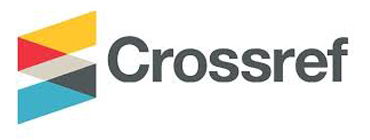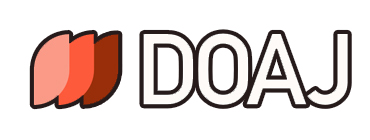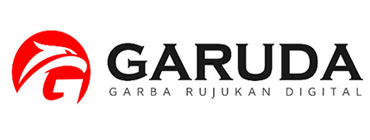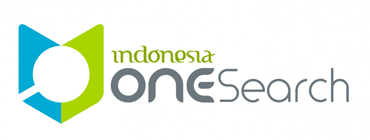THE FORMATION OF INTELLECTUAL AND SPIRITUAL INTELLIGENCE OF STUDENTS IN THE ERA OF ADVANCED SCIENCE AND TECHNOLOGY WITH T2R INNOVATION
Abstract
So far, various problems that occur in schools are very alarming. This problem is a concern for the general public, especially for parents and teachers. The rapid development of modern science and technology has become one of the causes. The purpose of this study is to determine the formation of intellectual and spiritual intelligence through T2R innovation. In Al-Qur'an, the Ali 'Imron verses 190-191 contains the concept of the balance of human thought patterns and contemplation of the heart which is translated in the order of intellectual and spiritual intelligence. Intellectual intelligence is related to the awareness of space, something that appears, and the mastery of mathematics. Spiritual intelligence deals with and solves problems of meaning and wider values. The method used in this research is study library research (SLR) and interviews with data processing techniques in the form of descriptive analysis. The T2R innovation is designed to be a solution related to the problems that occur, namely by conducting innovation teaching orientation, ta'lim muta'allim implementation, and improving the world scientific research.
Full Text:
PDFReferences
Al-Zarnuji, Syaikh. t.t. Kitāb Ta‟līm Al-Muta‟allim fī Tharīq al-Ta‟allum. Surabaya: Maktabah Shahabat Ilmu.
Ardana, I. C., Aritonang, L. R., & Dermawan, E. S. (2013.). KECERDASAN INTELEKTUAL, KECERDASAN EMOSIONAL, KECERDASAN SPIRITUAL, DAN KESEHATAN FISIK UNTUK MEMPREDIKSI PRESTASI BELAJAR MAHASISWA AKUNTANSI (Studi Empiris Pada Mahasiswa Tingkat Akhir (Skripsi) S1 Akuntansi FE Untar). Jurnal Akuntansi, 03, 15.
Ashshidieqy, H. (2018). HUBUNGAN KECERDASAN SPIRITUAL TERHADAP PRESTASI BELAJAR SISWA. JPPP - Jurnal Penelitian dan Pengukuran Psikologi, 7(2), 68–75. https://doi.org/10.21009/JPPP.072.02
Ayodele, A., & Mosunmola, A. (2015). Social Networking and Students’ Academic Performance: The Role of Attention Deficit, Predictors of Behavior and Academic Competence. 4.
Badie, et al. 2010. Development and Reliability and Validity of the Spiriritual Intelligence Scale.Tabriz: Universitas Payemee Noor.
Behling, O. (1998). Employee selection: Will intelligence and conscientiousness do the job? Academy of Management Perspectives, 12(1), 77–86. https://doi.org/10.5465/ame.1998.254980
Fitri, S. (2017). DAMPAK POSITIF DAN NEGATIF SOSIAL MEDIA TERHADAP PERUBAHAN SOSIAL ANAK. NATURALISTIC : Jurnal Kajian Penelitian Pendidikan dan Pembelajaran, 1(2), 118–123. https://doi.org/10.35568/naturalistic.v1i2.5
Hasan, J. (2019). AKSIOLOGI ILMU PENGETAHUAN (Telaah Tentang Manfaat Ilmu Pengetahuan dalam Konteks Ilmu Dakwah). Al-Idarah: Jurnal Manajemen dan Administrasi Islam, 3(1), 95-108.
Herawati, A. (2015). Kontekstualisasi Konsep Ulul Albab Di Era Sekarang. Fikrah, 3(1), 123-140.
Ibrahim, S. (2007). AKTIVITAS AKAL DALAM PEMBUKTIAN KEBENARAN WAHYU. HUNAFA: Jurnal Studia Islamika, 4(1), 41-48.
Jalaluddin as-Suyuthi, Asbabun Nuzul: Sebab-sebab turunnya ayat Al-Qur‟an, terj. Lubaabun Nuquul fii Asbaabin Nuzuul, Tim Abdul Hayyie, (Jakarta: Gema Insani, 2008) hlm. 148-149
Jamun, Y. M. (2018). DAMPAK TEKNOLOGI TERHADAP PENDIDIKAN. 10, 5.
Khairuni, N. (2016). Dampak positif dan negatif sosial media terhadap pendidikan akhlak anak (studi kasus di smp negeri 2 kelas viii banda aceh). JURNAL EDUKASI: Jurnal Bimbingan Konseling, 2(1), 91-106.
Mahdar, D. (2014.). KEDUDUKAN AKAL DALAM AL-QUR’AN DAN FUNGSINYA DALAM PENDIDIKAN HUKUM ISLAM. 25.
Ngafifi, M. (2014). KEMAJUAN TEKNOLOGI DAN POLA HIDUP MANUSIA DALAM PERSPEKTIF SOSIAL BUDAYA. Jurnal Pembangunan Pendidikan: Fondasi dan Aplikasi, 2(1). https://doi.org/10.21831/jppfa.v2i1.2616
Nurseto, T. (2012). Membuat Media Pembelajaran yang Menarik. Jurnal Ekonomi dan Pendidikan, 8(1). https://doi.org/10.21831/jep.v8i1.706
Rahman, A. (2016). PENGARUH NEGATIF ERA TEKNOLOGI INFORMASI DAN KOMUNIKASI PADA REMAJA (PERSPEKTIF PENDIDIKAN ISLAM). 18.
Saputra, G. W., Rivai, M. A., Su’udah, M., Wulandari, S. L. G., & Dewi, T. R. (2017). PENGARUH TEKNOLOGI INFORMASI TERHADAP KECERDASAN (INTELEKTUAL, SPIRITUAL, EMOSIONAL DAN SOSIAL) STUDI KASUS: ANAK-ANAK. Jurnal Sistem Informasi, 12.
Setiawan, H. (2016). INTEGRASI IMTAQ DAN IPTEK DALAM PENGEMBANGAN PENDIDIKAN ISLAM. 1(2), 12.
Shofwan, A. M. (2017). Metode Belajar Menurut Imam Zarnuji: Telaah Kitab Ta’lim Al Muta’alim. Briliant: Jurnal Riset dan Konseptual, 2(4), 408. https://doi.org/10.28926/briliant.v2i4.96
Sulastyaningrum, R., Martono, T., & Wahyono, B. (2018). Pengaruh Kecerdasan Intelektual, Kecerdasan Emosional, dan Kecerdasan Spiritual terhadap Prestasi Belajar Mata Pelajaran Ekonomi pada Peserta Didik Kelas XI IPS di SMA Negeri 1 Bulu Tahun Ajaran 2017/2018. Universitas Sebelas Maret, 4(2), 1-16.
Supriyadi, S. (2017). Community of Practitioners: Solusi Alternatif Berbagi Pengetahuan antar Pustakawan. Lentera Pustaka: Jurnal Kajian Ilmu Perpustakaan, Informasi dan Kearsipan, 2(2), 83. https://doi.org/10.14710/lenpust.v2i2.13476
Yahya, M. S. (2006). Strategi Pendidikan Islam Menghadapi Kemajuan Iptek. Insania: Jurnal Pemikiran Alternatif Kependidikan, 11(1), 63-75.
Zohar, D. & Marshall, I.N. (2000). SQ: Spiritual Intelligence: The Ultimate Intelligence.
GreatBritain:Bloomsbury
DOI: http://dx.doi.org/10.30829/tar.v27i2.744
Refbacks

Jurnal Tarbiyah by UIN Sumatera Utara Medan is licensed under a Creative Commons Attribution-NonCommercial-ShareAlike 4.0 International License.
Based on a work at http://jurnaltarbiyah.uinsu.ac.id/index.php/tarbiyah.
Permissions beyond the scope of this license may be available at http://jurnaltarbiyah.uinsu.ac.id/index.php/tarbiyah/about/submissions#copyrightNotice.
















